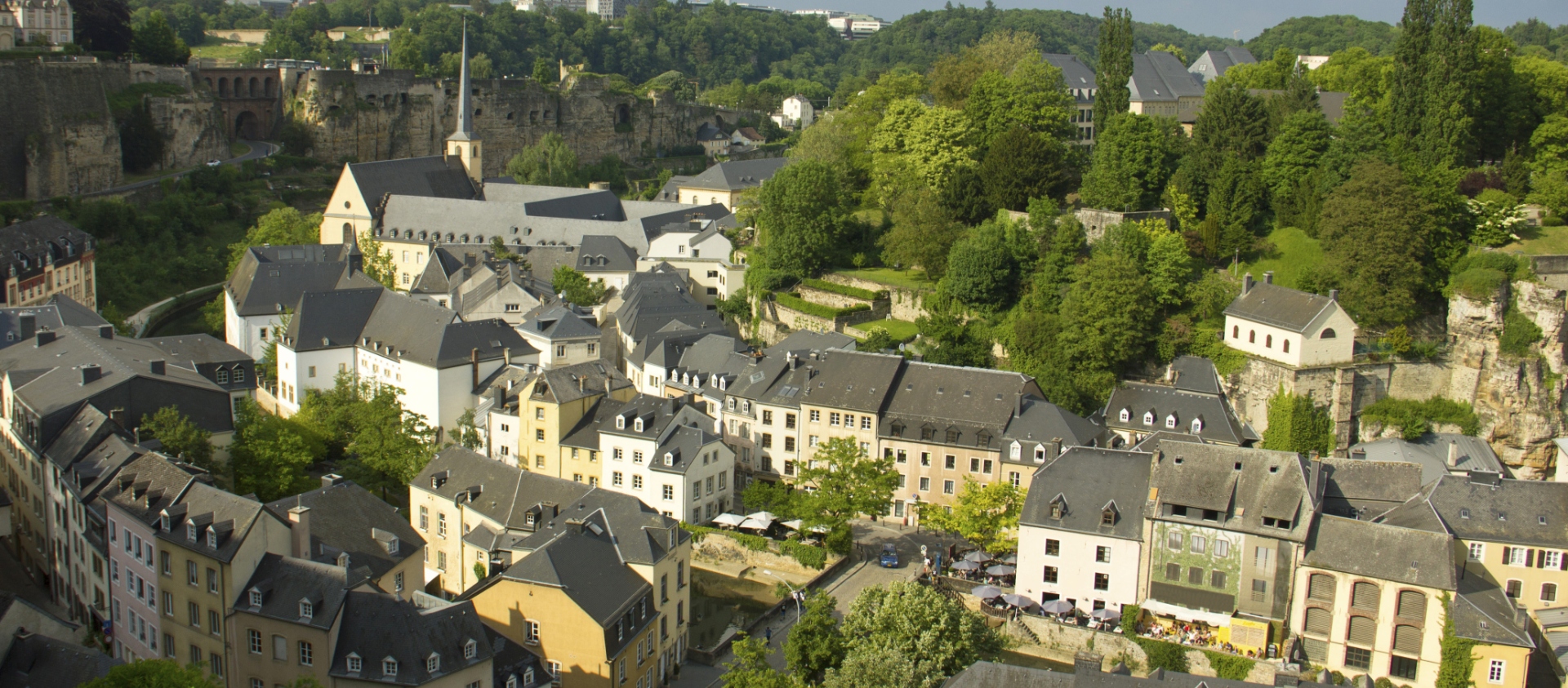Is Luxembourg the Perfect Place for Remote Work in 2025?
Overview of Remote Work in Luxembourg
Current Trends in Remote Work
Remote work is no longer a niche concept. It's a global phenomenon reshaping how we live and work.
Luxembourg, with its robust digital infrastructure, is at the forefront of this transformation. The country has made significant strides in ensuring high-speed internet access, ranking 3rd globally.
The Rise of Digital Nomadism in Luxembourg
Digital nomads are flocking to Luxembourg. They are drawn by its high quality of life and strategic location in Europe.
The government's proactive approach to fostering a tech-friendly environment further enhances its appeal. This makes it a great place to live and a hub for innovation and connectivity.
Is Luxembourg a Good Country for Remote Work in 2025?
Work-Life Balance and Employee Benefits
Luxembourg is renowned for its exceptional work-life balance. It ranks top in Europe, offering 37 days of annual leave and a minimum hourly wage of €14.26.

The country's universal public health insurance system and generous maternity leave policies add to its allure. It's a place where professionals can thrive without sacrificing personal well-being.
Comparison with Other European Countries
Compared to its neighbors, Luxembourg stands out. While Germany and Belgium offer competitive environments, Luxembourg's overall index score of 85.26 out of 100 in work-life balance surpasses them significantly.
Spain and France are close contenders. However, Luxembourg's higher minimum wage and comprehensive employee benefits provide a distinct advantage. This makes it a perfect spot for remote workers as described in Is France the Perfect Spot for Remote Work in 2025?.
Remote Work Opportunities in Luxembourg
Key Industries for Remote Positions
Luxembourg's economy thrives on finance, technology, and space industries. These sectors offer a wealth of remote work opportunities.
Fintech innovations and digital infrastructure projects are particularly promising. Roles in cybersecurity, AI, and data analytics are in high demand, aligning with global trends.
Job Market Insights and Statistics
The job market in Luxembourg shows both challenges and opportunities. While recent data indicates a dip in available jobs, the long-term outlook remains positive.
The economy is projected to grow by 2.3% in 2025. This growth, coupled with declining inflation, suggests a rebound in employment opportunities.
Hybrid and Fully Remote Job Options
Many companies in Luxembourg offer hybrid and fully remote positions. This flexibility is a boon for remote workers seeking a balance between office and home environments.
Fields like IT, finance, and legal are particularly adaptable to remote work. Job advertisements remote possible in Luxembourg show that community managers, IT developers, and accountants can often work entirely from home.
Cost of Living in Luxembourg for Remote Workers
Overview of Living Expenses
Luxembourg is known for its high cost of living. This is especially true in housing and food.
However, the high salaries often offset these expenses. The average tech salary is around €63,800, significantly higher than in many other European countries.
Detailed Breakdown of Costs (Housing, Food, Transportation)
Housing in Luxembourg City can be expensive, with one-bedroom apartments in the city center costing around $1,463 per month. Food and transportation also contribute to the high cost of living.

However, public transportation is notably affordable, with a monthly pass costing just 45 euros. This allows for unlimited travel throughout the country.
Financial Considerations for Digital Nomads
Digital nomads should carefully consider their budget. While living expenses are high, the potential for high earnings and excellent quality of life can make it worthwhile.
Utilizing cost-saving strategies, such as shopping in neighboring countries, can help manage expenses. Exploring options like Is Portugal the Perfect Spot for Remote Workers in 2025? might offer a more affordable alternative.
Best Cities in Luxembourg for Digital Nomads
Luxembourg City: The Hub of Remote Work
Luxembourg City is the epicenter of remote work in the country. Its vibrant culture, excellent infrastructure, and numerous coworking spaces make it ideal for digital nomads.
The Grund neighborhood, with its lively atmosphere and cultural attractions, is particularly appealing. The city's cosmopolitan nature and diverse population create a welcoming environment for expats and remote workers.
Other Notable Cities and Their Appeal
Beyond the capital, other cities like Esch-sur-Alzette and Differdange offer unique charms. These cities provide a quieter, more affordable alternative while still being well-connected.
Their proximity to Luxembourg City ensures easy access to the capital's amenities. This makes them attractive options for those seeking a balance between urban and suburban living.
Visa Requirements for Remote Work in Luxembourg 2025
Overview of Visa Options for Remote Workers
Luxembourg offers several visa options for remote workers. EU citizens can live and work freely without a visa.

Non-EU citizens may need to apply for a temporary residence permit or a long-term visa. The specific requirements depend on nationality and the nature of the remote work.
Application Process and Necessary Documentation
The application process involves submitting a 'declaration of start of employment for self-employed persons' form to the Joint Social Security Centre. Depending on the type of freelance work, a business permit may also be required.
Freelancing and employment laws in Luxembourg state that freelancers must register with the Joint Social Security Centre. Non-EU citizens should apply for a temporary residence permit from the Immigration Department.
Conclusion: The Future of Remote Work in Luxembourg
Summary of Key Points
Luxembourg offers a compelling mix of high living standards, excellent work-life balance, and robust digital infrastructure. The country's economy shows promising growth, particularly in tech and finance sectors.
However, the high cost of living and competitive job market present challenges. Strategic positioning in growing industries and leveraging remote work opportunities can mitigate these challenges.
Final Thoughts on Choosing Luxembourg for Remote Work
Choosing Luxembourg for remote work in 2025 is a decision that balances opportunities with challenges. The country's commitment to digital innovation and quality of life makes it an attractive destination.
For those prepared to navigate the costs and competition, Luxembourg offers a rewarding environment for remote work. It is a place where professionals can thrive both personally and professionally, similar to the opportunities found in Is the Netherlands a Great Choice for Remote Work in 2025?.
Key Takeaways:
- Luxembourg excels in work-life balance, topping European rankings with generous leave and high minimum wage.
- The tech and finance sectors offer significant remote work opportunities, especially in fintech and cybersecurity.
- High living costs are offset by high salaries and excellent public services, including affordable public transportation.
- Luxembourg City is the prime location for digital nomads, with vibrant neighborhoods and robust infrastructure.
- Visa options are available for both EU and non-EU citizens, with a straightforward process for registration and permits.
